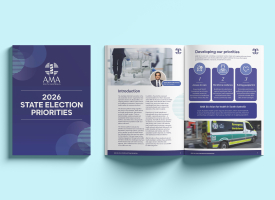AMA urges community to remain cautious about COVID-19 after SA outbreak
The South Australian COVID-19 outbreak highlights the need for all Australians to remain vigilant and be tested for the virus, AMA President Dr Omar Khorshid said.

The rapid escalation of cases linked to the Adelaide cluster – from four infections to 17 within two days – is of particular concern, Dr Khorshid said.
South Australia has moved to open up significantly after a long period of no community transmission, which makes the community more vulnerable to outbreaks as a result.
“There is no doubt that people are becoming more complacent as restrictions ease and governments aim for ‘COVID-normal’ by Christmas,” Dr Khorshid said.
“We must accept that until there is an effective vaccine, we must live with restrictions and remain COVID-cautious.”
Restriction fatigue, falling numbers of infections and mixed government messaging all appear to be contributing to people becoming complacent, resulting in the significant drop in COVID testing cross many parts of the country.
“Getting a COVID test is fundamental to being able to keep COVID-19 contained,” Dr Khorshid said.
Dr Khorshid said even if people only have one COVID-19 symptom, or their symptoms are quite mild, they should still get tested.
“When you have symptoms, you should also self-isolate until you get a negative test result – this includes staying away from work,” he said.
“People in self-isolation can still access medical care, with telehealth services available under Medicare.”
Governments must also keep the community informed about COVID-19 with simple and clear messages that explain the risks associated with the virus.
“Testing, the rapid reporting of results and contact tracing are central to our COVID-19 response, and the effective resourcing of these must remain a priority for all governments.”
The AMA communique on COVID-19 and the measures required to tackle the virus and support economic recovery is available here.
Read the full media release here.



